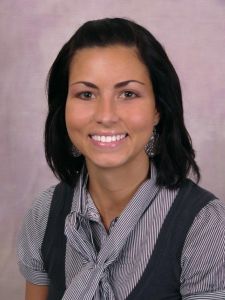 Almost everyone has had to make adjustments in their lives as a result of the coronavirus pandemic and stay-at-home orders.
Almost everyone has had to make adjustments in their lives as a result of the coronavirus pandemic and stay-at-home orders.
Doctor’s appointments are taking place virtually. Waiting in line, six feet apart, just to get into any store is the norm now.
But what about those who don’t have internet access? Or those who can’t leave their homes at all?
UCI Sue & Bill Gross School of Nursing assistant clinical professor Sara Brown is dedicated to making sure the most vulnerable populations don’t through the cracks, especially in times like these.
Opening access for refugees
One of Brown’s projects is a partnership with Home for Refugees, a nonprofit social service agency that helps refugees establish themselves in the United States.
Each of Brown’s students is assigned a refugee family. Their initial task is to help them set up their internet so they can take advantage of telehealth services. Many of the families are escaping violence and speak no English.
“We haven’t considered the question of whether those services can be accessed when they’re announced,” Brown says.
Her students assist by calling the internet providers, helping the family negotiate rates and discounts, then setting up their service.
But the relationship does not end there.
“During that process, the student is developing a rapport with the family,” Brown says.
Students stay involved, doing everything from answering their health questions to being alert for other needs the family may have or barriers they may encounter.
Each family with Home for Refugees also has a dedicated team of six to 10 volunteers helping them. Brown’s students work closely with this team to ensure the family’s needs are addressed.
Her students work with about 50 families across the country.
Virtual education for hospitalized patients
When hospitals close off access to visitors, patients bear the emotional brunt of loneliness and isolation.
Brown’s students have stepped up to help be a part of the solution by offering iPads to patients who would like visits. Nursing students then regularly log on to chat.
Additionally, so UCI Medical Center nurses can focus on the highest needs, students also remotely provide instructions and education to patients before they are released from the hospital.
In addition to that, they are working on implementing a program to educate patients about MyChart, the UCI Health patient portal.
“Many patients aren’t using it or don’t know how,” Brown says.
As a result, they’re missing out on ways to get important news and information, easily make appointments, get medical records and communicate with their physicians.
Virtual education for students
Transitioning from being in a classroom every day to remote learning is not necessarily a simple adjustment, especially for young children.
To make it a little easier, Brown’s students offer a health education class every day at 1 p.m. Four senior nursing students lead the classes, which cover topics such as:
- Caring for asthma and allergies
- Exercise
- Healthy eating
- Emotional wellness
- Gratitude
Students love the classes, which are now offered in several districts across Orange County and Los Angeles.
Getting food and information to seniors
Brown is also leading an effort to help isolated older adults with a partnership between the Orange County Food Bank and Amazon.
In Orange County, 22% of adults 65 and older live alone and could be at risk for social isolation, according to the Orange County Strategic Plan for Aging.
Nursing students make the initial contact to assess them and understand their needs.
From there, they deliver food weekly and check in to ensure the seniors’ needs are being met.
Meeting the needs of the vulnerable and students
Brown, no doubt, is very busy. But she recognizes how important her work is, especially now.
Her students also need her.
Hospitals are mostly closed to students because of the coronavirus pandemic. Third- and fourth-year nursing students are getting their required supervised hands-on hours with patients in other ways.
Brown’s many projects are one way they’re able to get those hours right now, all while serving the needs of people who might be otherwise overlooked.
“We’re meeting the vulnerable where they are, while also meeting the students’ needs.”
